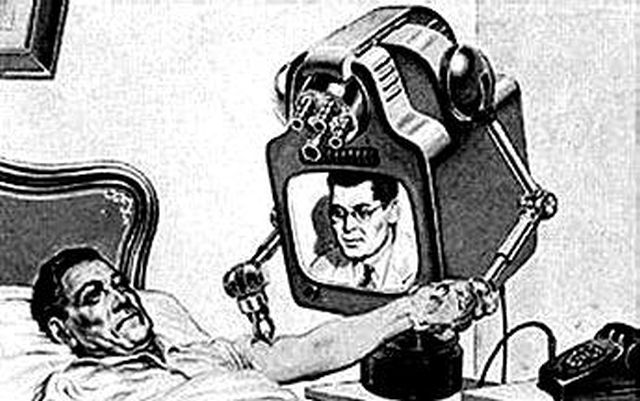Teledoctors vs Standard Medical Care: Which is Better?
Teledoctors vs Standard Medical Care: Which is Better?
Blog Article
Discovering the Conveniences and Obstacles of Teledoctors in Modern Health Care
As the health care landscape develops, teledoctors have arised as an essential element in connecting gaps in clinical accessibility and effectiveness. While they provide the guarantee of reaching remote locations and lowering functional expenses, the journey is not without its difficulties. Privacy concerns, the digital divide, and cybersecurity dangers posture considerable difficulties that need to be resolved to harness their full possibility. Just how can the healthcare industry equilibrium these advantages with the intrinsic difficulties? This quandary welcomes a much deeper exploration into the transformative function of teledoctors in shaping the future of medical care delivery.
Expanding Access to Treatment
Telemedicine has actually arised as a pivotal innovation in modern-day healthcare, considerably increasing accessibility to care for varied populations. By leveraging electronic modern technology, teledoctors have changed the standard medical care shipment version, making it feasible for individuals in underserved or remote areas to get timely clinical assessment. This evolution is especially advantageous for individuals living in rural areas, where the scarcity of medical care centers and experts often leads to delayed or inadequate treatment.
Teledoctors are important in bridging the space created by geographical obstacles. Through online assessments, individuals can access a broad variety of health care solutions without the requirement for substantial traveling.
The combination of teledoctors right into healthcare systems also supports the administration of public wellness crises by facilitating quick response and triage. Throughout pandemics, as an example, virtual examinations reduce the concern on physical healthcare centers, minimizing direct exposure threats for both clients and healthcare service providers. As telemedicine proceeds to develop, it assures to reshape the landscape of health care availability, making it a lot more reliable and comprehensive.
Cost-Effectiveness of Teledoctors
The cost-effectiveness of teledoctors is a considerable variable driving their widespread adoption in healthcare systems. By reducing the demand for physical infrastructure and in-person sees, teledoctors supply a more cost effective option to standard health care shipment. This model permits healthcare service providers to reduced operational costs, such as those linked with preserving physical workplaces and employing substantial on-site team. teledoctors. Consequently, these cost savings can be passed on to people in the form of reduced examination charges, making medical care much more available to a more comprehensive population.
Additionally, teledoctors help with a much more effective usage of health care resources by minimizing unnecessary emergency situation area visits and hospital admissions. Patients can access prompt consultations for minor conditions or follow-up care, which helps to reduce the worry on overstretched medical care facilities. This performance not only causes set you back financial savings for doctor however likewise minimizes the economic stress on clients who may otherwise deal with pricey hospital expenses.
Additionally, teledoctors can assist in managing persistent conditions better by offering regular monitoring and prompt treatments. This positive technique can stop complications, thus decreasing long-lasting treatment prices. On the whole, teledoctors present a practical solution to the rising costs of medical care, while preserving top quality care delivery.
Enhancing Individual Benefit
While cost-effectiveness plays a critical function in the increase of teledoctors, boosting patient ease stands as one more engaging advantage of this medical care design. With the combination of teledoctors, individuals can bypass the typically time-consuming process of scheduling and attending in-person appointments. This model eliminates the requirement for traveling, minimizing time invested in transit and go waiting areas, therefore supplying considerable time cost savings for individuals. Especially for those with flexibility problems or residing in remote areas, teledoctors supply an essential web link to treatment that could otherwise be hard to reach.
Moreover, teledoctors supply versatile scheduling, permitting individuals to organize consultations sometimes that ideal match their specialist and personal commitments. This versatility is indispensable for individuals balancing requiring job timetables or household duties, guaranteeing that medical care can be integrated effortlessly into their lives. Furthermore, the capacity to access doctor from the convenience of one's home can lead to enhanced client engagement and adherence to treatment strategies, as the barriers to looking for treatment are minimized.
The convenience given by teledoctors not only boosts the patient experience but also contributes to a more responsive and effective health care distribution system, ultimately supporting better health and wellness results.
Addressing Privacy Worries
In the middle of the expanding fostering of teledoctors, personal privacy concerns arise as a significant consideration. As healthcare significantly depends on electronic platforms, making certain the confidentiality of person info ends up being critical. The digitization of medical records and using telecommunication innovations necessitate durable safety and security measures to protect sensitive information from unapproved accessibility and breaches.
Healthcare service providers must stick to strict policies, such as the Medical Insurance Portability and Responsibility Act (HIPAA) in the USA, which develops national criteria for safeguarding clinical details. Compliance with such guidelines is essential in preserving individual trust and guaranteeing their data is taken care of properly. Security of data, protected interaction networks, and regular audits are several of the procedures that can be carried out to improve data security.
In spite of these procedures, difficulties continue. Cybersecurity threats are advancing, and medical care organizations must stay cautious to new vulnerabilities. Furthermore, educating both clients and doctor concerning finest methods in information privacy is crucial. This consists of recognizing the constraints of data and the value of safe and secure login qualifications. teledoctors.
As teledoctors come to be a lot more integral to medical care shipment, attending to privacy concerns is vital to make certain both the effectiveness and reliability see post of these services.

Browsing the Digital Divide
Linking the electronic divide is a vital difficulty in the prevalent fostering of teledoctors. The benefits of teledoctors-- such as raised ease of you could try this out access and convenience-- stay unreachable for lots of individuals that might most profit from them.
In addition, campaigns to subsidize innovation for low-income homes can play an essential role in guaranteeing fair accessibility. Health care carriers and community companies should work together to use electronic literacy programs, encouraging patients to navigate telehealth systems with confidence.

Verdict
The integration of teledoctors into modern-day medical care uses significant advantages, including increased access to care, cost-effectiveness, and improved individual convenience. Nonetheless, difficulties such as personal privacy problems, the digital divide, and cybersecurity dangers should be resolved to make best use of these advantages. By implementing robust information defense actions, improving electronic literacy, and making sure safe and secure technical infrastructure, the potential of teledoctors can be totally understood, advertising equitable medical care distribution and transforming the health care experience for all people.

Report this page